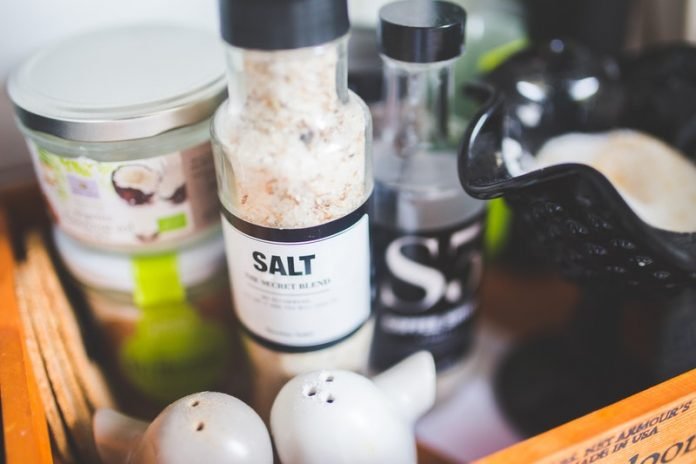
In a new study, researchers found that reducing salt intake to what’s considered a healthier level appears to be good for both gut health and blood pressure.
In the blood of 145 adults with untreated high blood pressure, the researchers found that just six weeks of a daily salt intake close to the 2,300 milligrams recommended by the American Heart Association, resulted in increased levels of short-chain fatty acids, an indicator of a healthy microbiome, circulating in the blood.
The adults also experienced decreased blood pressure and more compliant blood vessels.
The research was conducted by a team at Augusta University.
There is increasing evidence that the gut microbiome has a direct role in regulating blood pressure and how the average American high-salt diet can interfere with a healthy direction.
Emerging evidence suggests that a high-salt diet alters the gut microbiome, particularly in salt-sensitive high blood pressure, but there is little human data.
The gut microbiota is all the bacteria, viruses, protozoa, and fungi populating your gastrointestinal tract, which have a wide range of functions from helping digest your food to your immune response to influencing a propensity to gain weight.
Short-chain fatty acids, or SCFAs, are known to play a role in blood pressure regulation.
These small metabolites originating from the gut, get absorbed into the entire circulation, binding to receptors on the lining of blood vessels and in the kidneys, regulating things like the release of renin, an enzyme that works to keep the kidneys well perfused and a major player in blood pressure control.
Blood levels of SCFAs can be considered an indicator of the health of the gut microbiome.
In the study, the team examined people aged 30 to 75 who had in common untreated high blood pressure.
All the individuals were given two weeks of detailed instruction by nurses on how to lower their sodium intake to about 2,000 milligrams daily, information that was reinforced over the course of the study.
Then half the participants got either a sodium tablet or placebo tablet nine times daily for six weeks, then switched groups.
The team found salt reduction increased all eight of the SCFAs, the end product of the fermentation of fibers we consume by our microbiota.
The increased SCFA levels were consistently linked to lower blood pressure and increased blood vessel flexibility.
While periods of higher salt intake drove up blood pressures in both males and females and improvements were noted in both sexes with a move to lower salt, the shifts were most dramatic in women.
The American Heart Association recommends Americans consume less than 2,300 milligrams of sodium daily but most adults consume more like 3,400 milligrams.
One author of the study is Dr. Haidong Zhu, a molecular geneticist at the Georgia Prevention Institute.
The study is published in Hypertension.
Copyright © 2020 Knowridge Science Report. All rights reserved.



